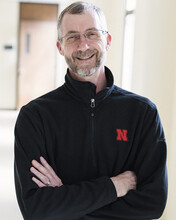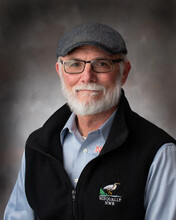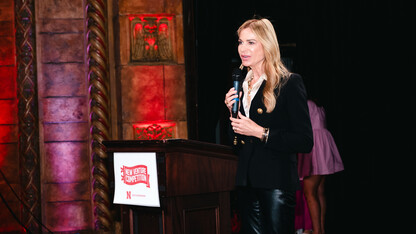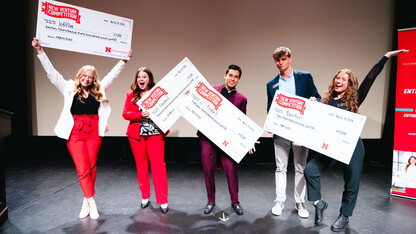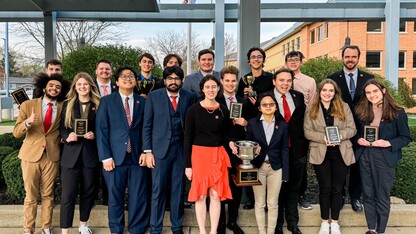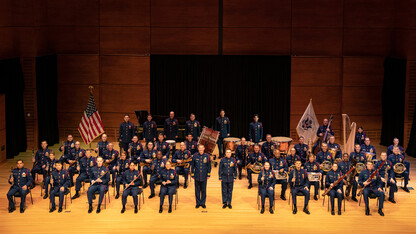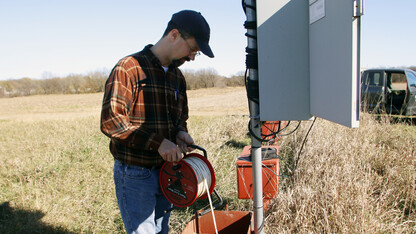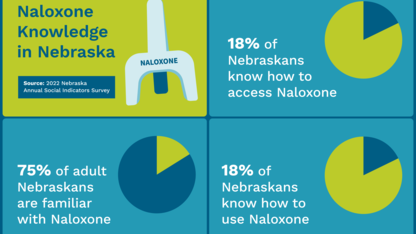· 5 min read
Bevins, Powers named AAAS fellows
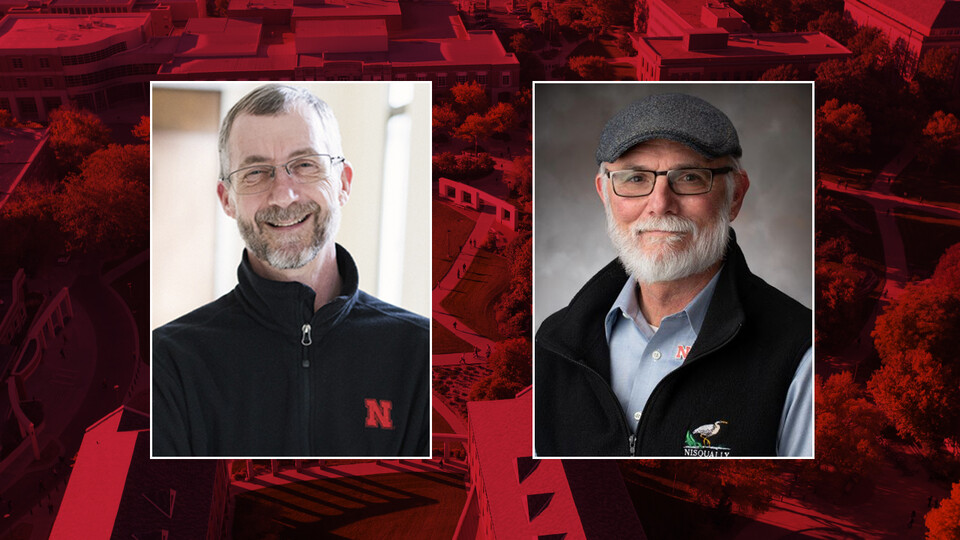
Two University of Nebraska–Lincoln faculty have been selected as fellows of the American Association for the Advancement of Science, the world’s largest multidisciplinary scientific society. Fellows are selected by their peers for scientifically or socially distinguished achievements that advance science or its application.
Nebraska’s new AAAS fellows are:
Rick Bevins, Mildred Francis Thompson University Professor of psychology and associate vice chancellor for research, for distinguished contributions to understanding the behavioral and neurobiological underpinnings of addiction.
Thomas Powers, professor of plant pathology, for distinguished contributions to the field of nematology, particularly for development of molecular diagnostics for plant parasitic nematodes, and for advancing understanding of nematode evolutionary biology and nematode biogeography.
The 2023 AAAS fellow cohort has 502 members, who will be featured in the April edition of the journal Science and honored in Washington, D.C., in September. AAAS has been electing fellows since 1874.
More on Nebraska’s new AAAS fellows:
Rick Bevins
Bevins is an internationally recognized researcher in behavioral pharmacology and addiction science. He works with collaborators from Nebraska and across the country to identify the environmental, neural and other biological processes fueling substance use disorders, especially nicotine and methamphetamine use and misuse.
Bevins’ work is distinctive for its focus on how associative learning changes substance use and addiction behaviors. Though scientists have long recognized the relationship between internal stimuli and drug use, Bevins was among the first to hypothesize that drug-induced internal sensations that reliably occur alongside positive experiences — peer acceptance or alcohol use, for example — would escalate the risk of drug use.
“Directly testing this hypothesis in a preclinical model is one area where I think I made the difference,” Bevins said. “Scientists hadn’t been systematically studying how internal stimuli could be modified by learning in a way that changes the trajectory of the use or misuse of drugs.”
To study this novel question, his team developed rigorous associative learning procedures that included an intravenous drug self-administration protocol — the gold standard for studying drug taking, seeking and relapse in animals.
They also refined a protocol for studying object recognition in rats and mice that has helped researchers study memory, cognitive deficits and Alzheimer’s disease. The team also authored a review of conditioned place preference that is one of the most widely cited reviews on the topic.
In addition to continuous funding from the National Institutes of Health since 1996, Bevins’ work has been supported by the Department of Defense and the Nebraska Department of Health and Human Services. His team is responsible for more than 170 scientific publications, and in 2023, Bevins received the University of Nebraska’s Outstanding Research and Creative Activity award, the system’s top research honor.
At UNL, Bevins directs the NIH-funded Rural Drug Addiction Research Center, a role he said represents his career-long commitment to translational and interdisciplinary science.
Bevins credits his students, longtime research partner Scott Barrett, and collaborators at UNL, the University of Nebraska Medical Center and nationwide for powering his trajectory from first-generation college student at community college to a recipient of one of academia’s most prestigious honors.
“This is really a team effort, to me,” he said. “None of this would have been possible without them.”
Thomas Powers
Powers is an evolutionary biologist of nematodes, the microscopic roundworms that are the most abundant multicellular animals on the planet. For more than 40 years, Powers has been at the forefront of using nematology as a lens through which we can understand ecology, evolution, agriculture and resilience.
He is globally recognized as a pioneer in applying newly emerging genetic techniques to nematology. As a postdoctoral fellow, Powers was one of the first researchers to extract mitochondrial DNA from nematodes, which marked the beginning of a research trajectory that continues today: development of molecular diagnostics for plant parasitic nematodes, which damage crops by feeding on plants.
“Helping to establish mitochondrial DNA as an informative genetic marker in nematology is probably my greatest contribution to science,” he said.
Powers’ work is also distinctive for focusing on both fundamental knowledge and real-world applications. He has been instrumental in advancing the basic science of nematology, including identification and classification using a unique approach that merges morphological techniques with genetic-based methods. He has also conducted community and biodiversity studies across a wide range of landscapes, including agricultural fields in Nebraska, Great Plains prairies and tropical rainforests in Costa Rica.
Powers’ findings have had practical import, particularly in agriculture, as plant parasitic nematodes cause an estimated 15% annual yield loss of the world’s major crops. His work has helped shape practices related to nematode detection and diagnostics, pest management and agricultural biosecurity and trade regulations.
His research has also shed light on bigger-picture questions stemming from nematode biogeography. With funding from the National Science Foundation, Powers has explored how nematodes help explain Earth’s biodiversity patterns and current conceptualizations of North American ecoregions.
Beyond NSF, Powers has received funding from NIH, the U.S. Department of Agriculture, the U.S. Department of the Interior, state agencies and commodity boards. He has helped to author nearly 100 scientific publications and mentored many Husker students.
Powers said one of the most unique aspects of his career is its lack of a singular focus. Recently, he has explored yet another new area by using art to take the nematode story to the general public. Last year, his team unveiled its first nematode art exhibit at a gallery in Lincoln and will launch additional exhibits across Nebraska and neighboring states in 2024.
“Receiving an AAAS fellowship is a tremendous honor,” Powers said. “None of this work would have been possible without the amazingly talented team of students, research technicians and nematology colleagues that have shared the joy of exploration and discovery.”
